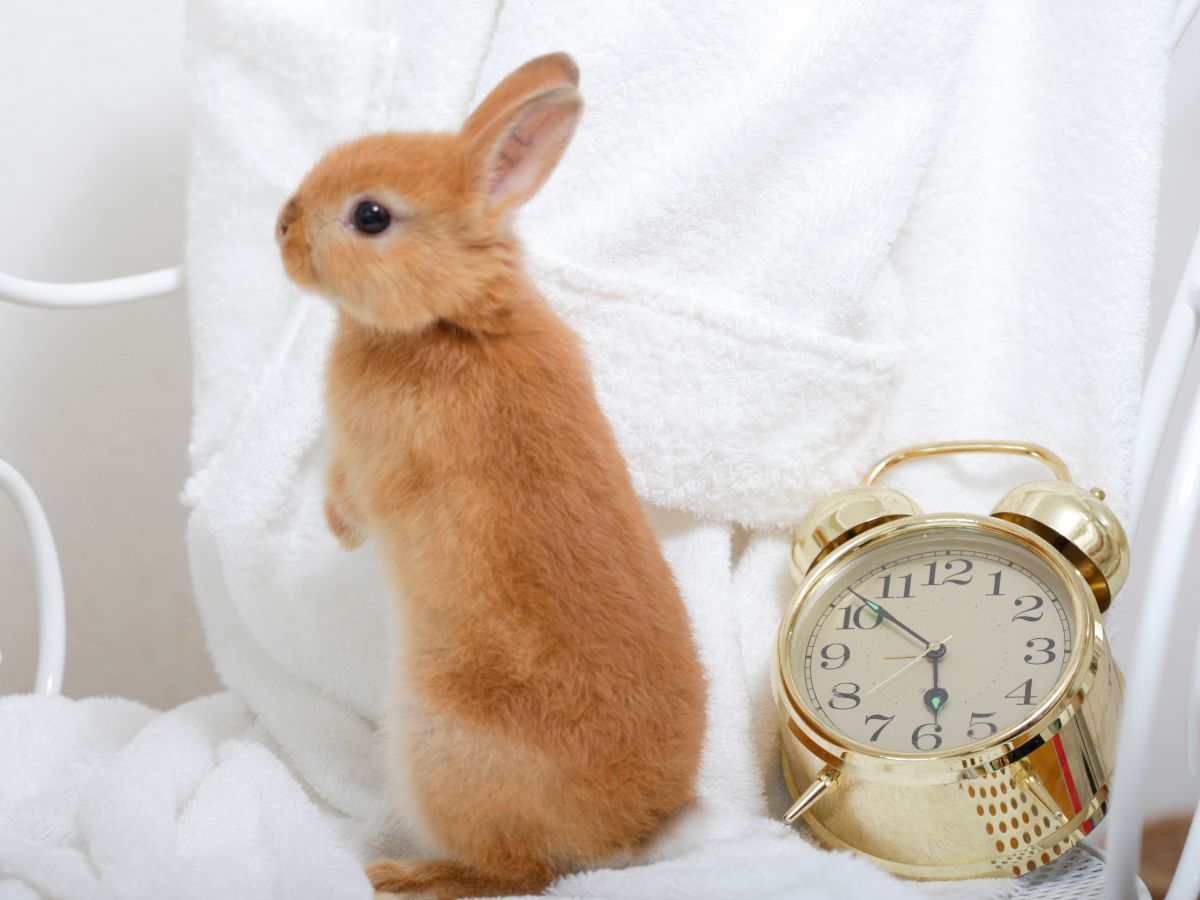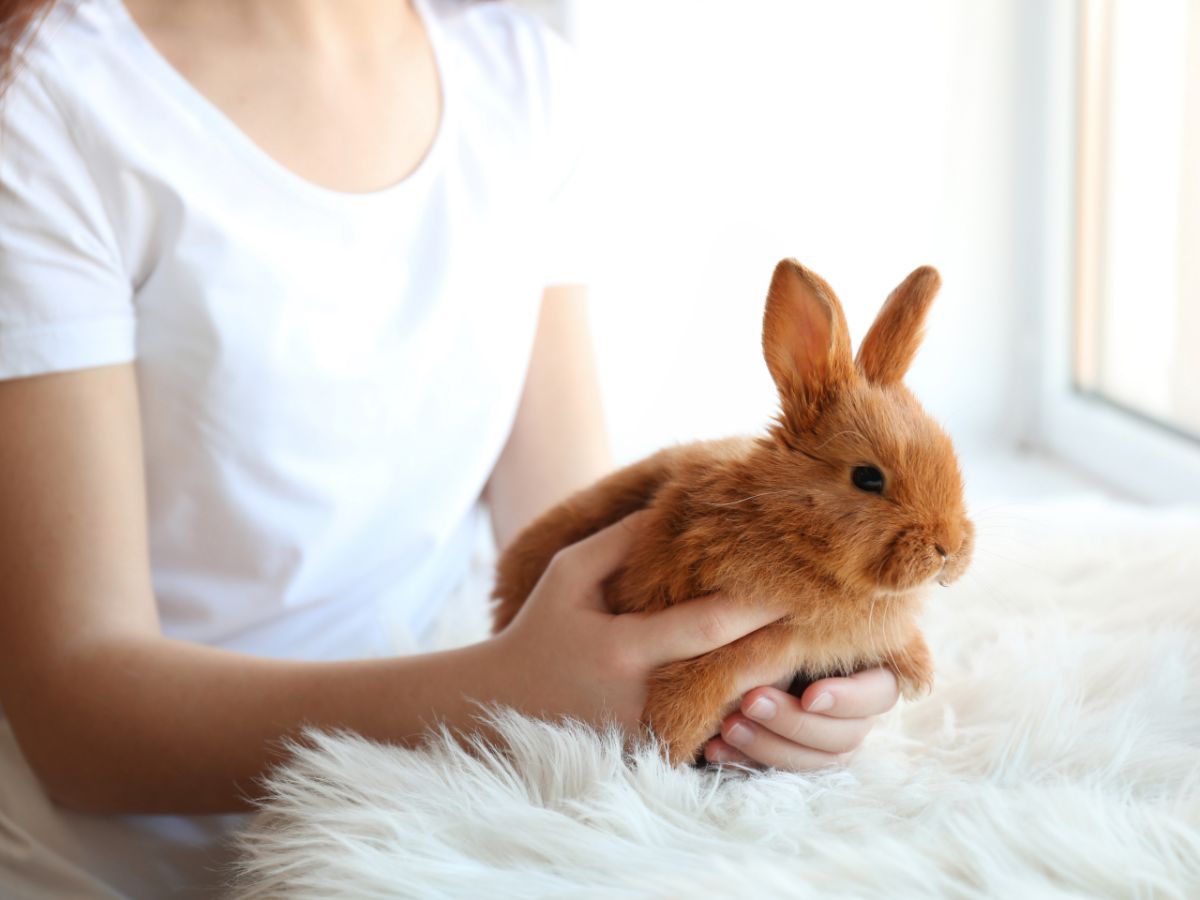The gender of a rabbit is generally not the main characteristic that plays a role in determining their habits or personality, as the breed, living conditions, and age could also play a role. However, knowing the differences between a male and a female rabbit could help you make the best decision possible. Should you choose a male or female rabbit?
Males make better pets when deciding between a female and a male rabbit. Males tend to be friendlier, less territorial, more affectionate, and cheaper to neuter. Females are larger in size and are more stubborn. However, male rabbits engage in sexual behavior and spray urine if not neutered.
You can rest assured that you’ll make a fantastic decision to choose a cute and fluffy rabbit as your next companion. However, some personalities may not be suitable for a female rabbit, and vice versa. Are you wondering if you should choose a male or female rabbit? Stick around to find out!
Contents
Is A Male Or Female Rabbit Right For You?
Although each rabbit has its own personality and nature, there are some distinct differences where gender plays a role.
With this being said, these differences mainly come down to destructive tendencies, including spraying, chewing, and digging, along with territorial instincts and the cost of healthcare.
Once you have spayed or neutered your rabbit, many of these differences will decrease.
Let’s take a look at the differences between male and female rabbits to help you with your choice:
1. Personality: Male Vs. Female Rabbits
Generally, female rabbits will have a stronger personality than male rabbits. They will be adventurous and stubborn, almost like a teenager! It’s also more common for a female rabbit to be more cautious of its owner during the first few days or weeks.
She may decide to do her own thing on her own terms and show less interest in bonding with you.
However, once a female rabbit has come to the conclusion that you are not a threat and start opening up to you, she is likely to be more loving and affectionate.
At this point, she will show all the typical signs of rabbit love, such as licking you or nibbling on your clothing.
It may also be good for you to remember that any bored rabbit is likely to have destructive behaviors, including destroying your carpets and digging.
2. Hygiene: Male Vs. Female Rabbits
Female rabbits are generally known to be cleaner and smell less than male rabbits. It is also much less likely that a female rabbit will spray, although they will occasionally.
However, it is also known that a female’s litter box habits will be cleaner, and they keep themselves clean with their excessive self-grooming behavior.
Thus, all these characteristics combined mean that a female rabbit ultimately smells less than a male.
3. Overall Temperate And Friendliness: Male Vs. Female Rabbits
When a rabbit is raised with lots of love and care, they will become friendly and attached to their owner, no matter what their gender is. They might even rush to their cage door to greet you and to get your undivided attention.
However, sadly most of the time, many rabbits are purchased to be children’s pets, and after the excitement has worn off, the child starts to display less interest in the rabbit.
This could result in the rabbit only being provided with the bare necessities to live and survive without being handled regularly.
Without a proper caring routine, interaction, and playing with humans, a rabbit can in no way be expected to be friendly or affectionate towards humans.
When a rabbit doesn’t get a sufficient amount of love and care, they can become moody and grumpy, and this becomes especially true with female rabbits.
Friendliness often comes more naturally to males than to females, so they won’t be too mad if you don’t get the chance to stimulate and play with them for a day or two.
4. Territorial Tendencies: Male Vs. Female Rabbits
In the wild, female rabbits tend to spend more time staying inside their burrow with their babies.
Over time, even though rabbits are domesticated animals, females still have a much stronger impulse and instinct to protect their space and territory than male rabbits.
This means that a female rabbit will be much more likely to be aggressive towards its owner, other people, or animals that try to enter its cage, as it is its territory. They may swat at you or even bite you if you reach into their cage to feed or pet them.
This type of behavior could be decreased once you have spayed your female rabbit, but there is no sure chance that it will go away entirely.

5. Size Differences: Male Vs. Female Rabbits
If you’re interested in buying a rabbit and living in a small apartment, you may be interested to hear about the size differences between a male and a female rabbit.
While many males are usually stronger and larger than females in several species, the opposite is true for rabbits.
For example, New Zealand rabbit males are usually between ten and eleven pounds, while the females would end up being between 11 and 12 pounds when they reach maturity.
This may not be a significant difference, but if you don’t have a large space, it may benefit you to look for a male smaller in size.
6. Spaying Costs: Male Vs. Female Rabbits
Spaying a female rabbit is a much more complicated procedure than neutering a male rabbit. For this reason, the costs of a spay surgery are usually as high as $600 or more, but it depends on the area and what veterinary practice you go to.
It’s also essential to spay a female rabbit earlier in its life. Females have an increased risk of developing uterine cancer if they are not spayed, and their chances increase with age.
If you are not willing or prepared for the high costs that come along with spaying a female rabbit, it would be best to adopt a male rabbit.
If you adopt a rabbit from a shelter, they will always be up to date with their shots and spayed or neutered.
7. Sexual Behavior: Male Vs. Female Rabbits
It’s important to know that both male and female rabbits will engage in sexual behaviors and that there is no guarantee that these behaviors will go away, even after they have been spayed or neutered.
Conclusion
Both male and female rabbits will make for excellent companions and require the same amount of love and care. You may want to consider a male if you’re looking for a slightly more affectionate and friendly pet.
However, if you don’t mind dealing with occasional mood swings and aggression, you can choose a female. You can’t go wrong with choosing a rabbit, and just like any other pet, they will have their quirks!




